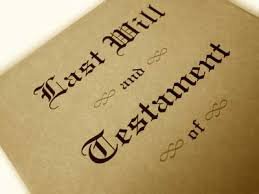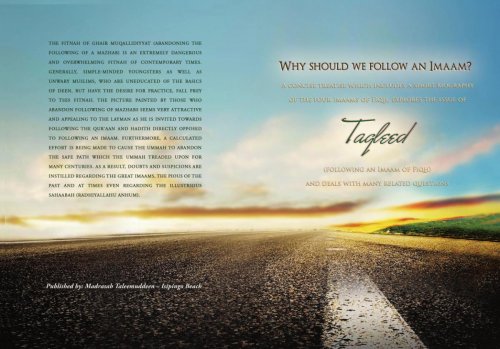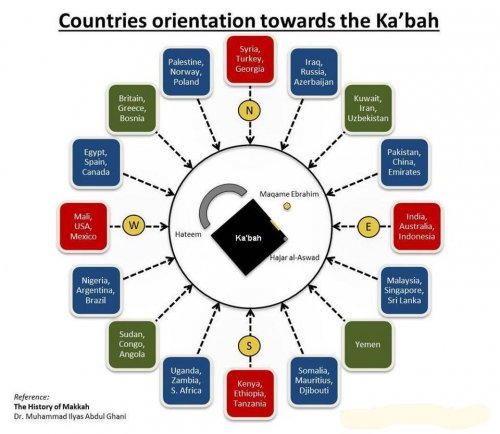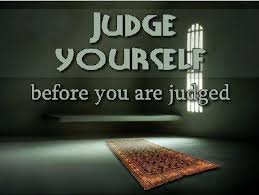-
Posts
8,434 -
Joined
-
Days Won
771
Content Type
Profiles
Forums
Events
Everything posted by ummtaalib
-
ISLAMIC WILL (According to English Law) Inter-Islam The following is an Islamic will and conditions for the will to be valid have also been listed. Those who require a copy of this will are free to make a printout of it. WASIYYAT According to the Shariah, Wasiyyat is permissible for non-heirs. Wasiyyat in favour of an inheritor is not permissible. Clause No.5 (iii) of the Islamic Will makes mention of Wasiyyat. If the testator makes no Wasiyyat, "section (iii) of clause No.5" should be deleted by striking a line across it. All signatories should identify the deletion with their full signatures. If the testator wishes to make Wasiyyat, the nature and description of the Wasiyyat should be set out on a separate sheet of paper. On the top of the sheet of the Wasiyyat paper, write: SCHEDULE A - WASIYYAT When making out the Wasiyyat, bear in mind the following: (a). A Wasiyyat cannot be made for any Islamic heir as such Islamic heirs inherit automatically in the estate of the deceased. (b). A Wasiyyat is valid only one third of the balance of the estate after payment of funeral expenses and debts. ©. The testator and the witnesses must also sign The Wasiyyat paper, “viz., Schedule A,”. CONDITIONS THAT HAVE TO BE FULFILLED IN ORDER TO RENDER THE WILL (WASIYYAT) VALID AND LEGAL (1). The testator (i.e. the one who makes a Will) and two witnesses must sign each page of the will. (2). The witnesses must not be under 14 years of age. They must be 14 or over. (3). The witnesses may not be beneficiaries or spouses of beneficiaries. For the purpose of signing Wills, `beneficiaries' include executors, administrators and guardians. (4). All signatories must be present throughout the signing process. No signatory may leave the room until all signatories have signed each page. (5). The date of signature should be inserted on the last page by the testator. (6). The signatures (full signatures) of the testator and witnesses must identify any deletion, addition or alternation as described in No.4, above. WASIYYAT (ISLAMIC LAST WILL) (1). I, the undersigned, ___________________ hereby cancel all former testamentary dispositions of whatsoever nature hereto formed by me, and declare this to be my last wasiyyat. (2). I hereby nominate and constitute, (i) ____________________________, (ii) ____________________________, (iii) ____________________________, jointly and severally, to be the Executor(s) of my Will and Administrator(s) of my Estate, granting to them all such powers allowed in law, especially the Power of Assumption. (3). My said Executor(s) and Administrator(s) shall not be obliged to furnish any security to the Master of the Supreme Court for the due and proper administration of my estate as laid down by the provisions of Act 66 of 1965 or any law governing the administration of estates. (4). I hereby direct that my said Executor(s) and Administrator(s) proceed with the distribution of my Estate in the following order of priority as commanded by Islamic Law: i. Payment for my funeral expenses ii. Payment of all my debts iii. Payment of the Wasiyyat as set out hereby iv. Distribution of the residue of my Estate to my Islamic heirs in accordance with Islamic Law. (5). My said Executor(s) and Administrator(s) shall endeavour to ascertain what amount, if any, is due by me in respect of my religious liabilities and obligations in accordance with the tenets of the Islamic faith until the date of my death; and for the guidance of my Executor(s) and administrators, I hereby declare that at present my liabilities on this respect are as follows:- i. Unpaid Zakaat (Annual Poor Rate) ii. Unaccomplished Hajj iii. Un-kept Sawm (Fast) iv. Unperformed Salaat v. Unfulfilled Compensation (Kaffaarah) vi. Un-discharged Vow (Nazar/Mannat etc). vii. Un-discharged Sacrifice of animal (Adh'hiyah / Qurbaani) or other Waajib (Lawful obligation) viii. _________________________________ ix. ___________________________________ x. ___________________________________ and accordingly I hereby direct and make Wasiyyat that such amounts shall be paid as a first charge to such persons or institutions / establishments as my Executor(s) and Administrator(s) shall determine to be entitled thereto according to the laws of Islam. The total amount payable under this clause shall not, however, exceed thirty-three and one-third per cent of the net value of my estate after the payment of all my lawful obligation, and all debts contracted by me during my life time, including Mahr (Dowry), Funeral expenses and expenses connected with the administration of my estate. (6). In the event of any balance remaining out of the thirty three and one-third per cent of the net value of my estate as mentioned in Clause 5 hereof, then I hereby make Wasiyyat according to the laws of Islam and give and bequeath (leave by Will), as free and absolute legacies, to the following charitable institution / establishments or persons out of such balance, the amounts as are set opposite their respective names, as follows:- (e.g. Darul-Uloom, Holcombe Nr Bury, BL8 4NG, U.K.) i. _________________________________________ __________ ii. _________________________________________ __________ iii. _________________________________________ _________ (7). It shall be the duty of my Executor(s) to determine who are my rightful heirs in accordance with the Islamic Law and what share each is entitled to receive. I do hereby nominate such persons in the shares determine, to be the heirs of the whole of the residue of my Estate, wherever situate, in the U.K., or elsewhere. (8). A Certificate stating the rightful heirs in my Estate, showing their respective shares therein in accordance with the Islamic Law issued by the Mufti of any recognised Islamic theological body, or by any certified Aalim (qualified scholar of Islamic Law), shall be accepted for all purposes as a lawful document, determining my rightful heirs. (9). In determining my heirs, my Executor(s) or any Muslim Judicial Council / Body or any certified Aalim of the Islamic religion shall take full cognisance of any marriages lawfully contracted by me anywhere in the world according to the tenets of the Islamic faith. (1O). I hereby direct that any share under this Will hereto falling to a female shall be paid to and fall and belong to her sole, absolute and exclusive property, and be excluded from the community of property that may now or hereafter exist between her and any husband she has married or may marry and shall be from the jus mariti and right of administration ordinarily to him accruing whether by virtue of the law of community of property or otherwise. The receipt alone of any female inheritor in my Estate, without the assistance of her husband, shall be a good and sufficient discharge to my Executor(s) / Administrator(s) therefore. (11). It is my express desire that my Executor(s) Administrator(s) shall wind up my Estate as promptly as possible until the final approval of the liquidation and distribution account. Any business carried on in my name at the time of my death, or any other assets belonging to my Estate, by arrangements between the heirs, be taken over by any or all of them. Any inheritance accruing to a minor child in terms hereof shall be retained by my Executor(s) Administrator(s) in trust for the benefit of such a minor until that minor attains the age of majority as determined by Islamic Law, in which event my said Executor(s) / Administrator(s) shall pay over to the said minor his / her share of the inheritance, and may be utilised to acquire any business or assets in the Estate, or any share in such business or assets, or any investment deemed suitable by my Executor(s) / Administrator(s) provided that the investments are in accordance with Islamic Law. And my Executor(s) / Administrator(s) are authorised in their discretion to apply the income and in case of need a portion of the capital of the Trust assets for the maintenance, education and general welfare of the beneficiary of the Trust provided that any such application of income is in accordance with the Islamic Law. No minor heir shall be entitled to participate in any discussion or matters affecting my Estate, without the approval of my Executor(s) / Administrator(s). If no agreement is reached between my heirs within a reasonable time, all Estate assets shall be realised and the proceeds distributed in the manner aforementioned. My Executor(s) /Administrator(s) shall have the right to carry on and continue any business carried on in my name in partnership or otherwise, at the time of my death, so long as they may consider it desirable for the benefit of my heirs in their absolute discretion. (12). In the event of any one or more of my said Executor(s) / Administrator(s) predeceasing me, or dying during his term of Office or declining to act, then the remaining or surviving Executor(s) / Administrator(s) shall be authorised to act alone. Furthermore in the event of all such Executor(s) / Administrator(s) predeceasing me or dying during his term of Office or declining to act, then I declare that any Islamic Judicial body shall be authorised to appoint one or more Executor(s) / Administrator(s). (13). My said Executor(s) / Administrator(s) shall not be required to pay any minor's inheritance into the Guardian's fund, nor shall they be required to furnish any security to the Master of the Supreme Court for the due administration of the inheritances due to such minors. (14). My said Executor(s) / Administrator(s) shall be entitled to make reasonable periodical payments for the proper maintenance, education and support of such heir, and to deduct such payment from the inheritance of such heir. (15). I hereby direct that my body be buried within the town / country that I die and must not be moved to another country. (16). I hereby direct that the least possible expenses be incurred in my shroud, coffin and other burial expenses. (17). I hereby direct that a certificate issued by a competent Islamic Judicial body or by any qualified Aalim in Islamic Law shall be binding and conclusive as to the aforesaid Islamic Law and the distribution of my Estate. Note: An Aalim in Islamic Law for this purpose will be any man recognised as a qualified Aalim by any Islamic Judicial body. (18). I hereby direct that the Wasiyyat be examined by an Islamic Judicial body or by any qualified Aim described in no. 17 above, and a certificate as to the validity of the Wasiyyat in Islamic Law be obtained from the Islamic Judicial body concerned. (19). I hereby direct that if the Wasiyyat be in conflict with Islamic Law, the Islamic Judicial body concerned in examining this Wasiyyat will have the right to annul the Wasiyyat, the whole of it, if the whole be in conflict with Islamic Law or annul that portion of the Wasiyyat which conflicts with Islamic Law. THUS DONE and EXECUTED at _______________ this ___________ day of _______________ 19 ______ corresponding with the Islamic _____________________ day of __________________ 14_______ in the presence of the subscribing witnesses, who signed in each other's presence, all being present at the same time. WITNESSES: (i) ____________________________ (ii) __________________________ TESTATOR: _____________________________________________________________
-
Guidelines on Preparing a will and testament Islamically Answered by Shaykh Muhammad ibn Adam al-Kawthari Can you please provide me with general guidelines that would help me prepare my last Will and testament according to Islamic law? Answer: In the name of Allah, Most Compassionate, Most Merciful, Writing and preparing a Will is undoubtedly very important, especially in non-Muslim countries, insuring that upon death, ones wealth and assets are distributed according to Shariah. There are a number of Islamic texts, both in the Quran and Sunnah, which point to the importance of Will-making, for example: Sayyiduna Abd Allah ibn Umar (Allah be pleased with them both) narrates that the Messenger of Allah (Allah bless him & give him peace) said: It is not befitting for a Muslim who has something to make a Will of, to remain for two nights without having ones last Will and testament written and kept ready with one. (Sahih al-Bukhari, no: 2587) The narrator of this Hadith (Abd Allah ibn Umar ibn al-Khattab) stated after hearing this from the Messenger of Allah (Allah bless him & give him peace): I did not let even one night pass by except that my Will would be kept by me. (Musnad Ahmad, 2/4) Making a Will becomes even more important in non-Muslim countries, such as the United Kingdom and US. The reason being is that, failing to leave a valid written Will can result in the law of the land deciding on how your estate is to be distributed, which obviously will not be in accordance with Shariah (Islamic law). Therefore, it is essential that all Muslims leave a valid written Will. Those who have, as yet, not made a Will should haste and prepare a Will. Writing a Will is not only for old people, rather all those who have reached puberty should quickly get their Will prepared, for there is no guarantee of when one will die. Below are simple and brief guidelines with regards to preparing and writing a Will in the West: The first and foremost aspect worth noticing here is that many Muslims are mistaken in believing that, writing a Will means distributing ones wealth and estate amongst the inheritors during ones lifetime. This is incorrect, as making a Will does not mean one must divide ones wealth amongst the various inheritors in ones life; rather, one must merely stipulate in the Will that upon my death, my executors will distribute my wealth according to Shariah. One may also state that this will be determined by a local Muslim scholar or Mufti, who will be contacted and appointed by my executors upon my death. The reason behind this is that the inheritance portions have been determined and allotted by Allah Most High in the Quran. These portions vary according to who is alive at the time of ones death. Death with leaving parents behind will differ from passing away after the parents have passed away, in that the inheritance portions will be different in both cases. As such, one cannot determine in ones lifetime as to how much percentage of ones wealth will be exactly allocated to each individual, for one is unaware who will be alive at the time of ones death. Even the death of one person can make a big difference in the division and distribution of the estate. The beauty of Shariah is its simplicity and certainty. When you are writing your Islamic Will, you do not have to try and figure out which of your relatives will still be alive when you die in order to make sure that they will receive something. Whoever administers your estate will ascertain (in collaboration with a knowledgeable scholar) which of your relatives are still alive and what fixed shares they are automatically entitled to inherit by applying the criteria of Shariah. Moreover, it is unlawful and invalid to make a bequest (Wasiyya) in favour of an individual who automatically is entitled to receiving a share of the estate, such as ones spouse, children and parents, etc. The Messenger of Allah (Allah bless him & give him peace) said in his historic sermon (khutba) of his farewell hajj (haj al-Wada): Verily Allah has given each rightful person their right, thus there is no bequest in favour of a inheritor. (Sunan Tirmidhi, no: 2120, narrated by Sayyiduna Abu Umama al-Bahili) The meaning of this Hadith is that Allah Almighty has already fixed and allotted the shares of those who are entitled to inherit from ones estate. As such, if one was to make a Will in their favour, one will be going against the shares fixed for them in the Quran and Sunnah. However, if one wished to make a bequest/Will for a non-relative, or for a charity, then this would be allowed (and rewarded), but only up to a third of ones total wealth. The remaining two thirds will be left to be distributed amongst the relatives according to the fixed shares prescribed by Allah Most High. If one does not make a bequest of up to one third of the estate, then all of the estate will be divided between the surviving relatives. The Messenger of Allah (Allah bless him & give him peace) forbade from making a bequest of giving ones wealth in charity which is more than one third, and regarding a third also, he stated: And a third is also more (although permissible). (Sunan Tirmidhi, no: 2116) The second point to remember here, which is very important, is that one must distinguish between a bequest/Will (wasiyya) and a gift (hiba). Many people fail to differentiate between the two, thus a grave error is committed. What a person gives to another in ones lifetime is considered a gift whilst attributing the giving of something after ones death is a bequest or Will (Wasiyya). For example, if I give my house to a friend whilst I am alive, then that will be a gift, but if I was to say that my friend will take ownership of my house after I pass away, then that is a bequest. At times, one would like to distribute ones estate amongst the children whilst one is alive. This will be valid provided it is given as a gift and not a bequest, because to make a bequest (or Will) for a relative who already qualifies to inherit is invalid, as mentioned previously. As such, if one desires to distribute the estate amongst the children whilst one is alive, then it does not have to be in accordance with the Shariah laws of inheritance, for it is merely a gift. However, the question arises as to whether it is necessary to distribute the estate equally between the children? The answer to this is that it is permissible to give the male children twofold of that given to the female children, as it would have been distributed as inheritance. It is also permissible to give all the children, male and female, equal shares. However, to give less than this to the daughters or to completely deprive them of any share, or to be unjust in the distribution of the wealth among the sons, without a valid Shari reason, is considered to be blameworthy and sinful. One will be sinful for favouring one child over the other, although the gift will stand as valid. Yes, if there is an Islamically valid reason, such as one child being extremely disobedient or involved in open sinning, it would be permitted to give him/her less. (See: Radd al-Muhtar) A point worth noting here is that Islamically a gift is only valid and complete when the one to whom the gift is given, takes full ownership and possession of the item. Merely, registering it on ones name is of no consequence in Shariah, hence the gift will be considered invalid. The possession in houses and properties will be established by the giving of keys, removing of furniture, and leaving no obstacles for the one whom the gift is given to come and reside in the property. Many times it is observed that the father only verbally says that this is your house, but he himself resides in the house and it is considered to be his. This will not be a valid gift. A gift is such that if the son was to say to the father: you must move out, he moves out without any hesitation, and it is completely understood to be the sons house. Thirdly, there is the issue of the husband and wife. If the house is solely owned by the husband, then upon his death, it would be distributed among all the inheritors. Many times it is observed that years pass by after the husbands death and the inheritance is not distributed. The deceaseds wife and some children keep residing in the house without even thinking about distributing it. This is a grave sin committed by all those who overlook this great injunction of Shariah. If the house was jointly owned by the couple, then in the event of one of the spouses death, half of the house will remain in the ownership of the other spouse, and the remaining half will be distributed. Thus, it would be wise for the couple to have joint ownership of the house. This also should be made clear to all the children, for being negligent in this regard brings about disputes and problems. Note that if the inheritors give their consent in their mother or father residing in the house, then this is permissible. However, what is necessary is that the shares are distributed, and then they may give their consent in allowing their mother or father to reside. However, one must be extremely precautious here, for all the inheritors must consent to this from their heart and must not be pressurised into it. If even one inheritor disagrees, his/her share will have to be given to him/her. The fourth point to note with regards to inheritance is that at times the deceased makes a unlawful and invalid bequest, such as saying that, my eldest son will take such and such property, the other such and such, my daughter will take the house, etc. In this case, it will be unlawful (Haram) and a grave sin for the relatives to distribute the inheritance according to the bequest made by the deceased. The estate must be distributed in accordance with the Quran and Sunnah. Finally, one must make sure that ones Will meets the requirements of the law of the land, for failing to do this may well render ones Will invalid. So in order to ensure that ones assets are distributed in accordance with the Shariah after ones death, one must write a Will, and that Will must comply with the requirements of the country one is residing in. Therefore, it is advisable that one seeks the advice of an expert practicing Muslim solicitor. Having understood the above general guidelines regarding Will-making, let us now look at how an Islamic Will is written. Normally when making a Will, one would stipulate the following: Revoking of all previous Wills. Naming the executors of the Will. Payment of funeral and burial expenses. Payment of all debts connected to the servants of Allah: After ones death, paying off ones debts is given primary consideration. Thus, ones leftover wealth will first be utilized in repaying the debts, and then the remainder, if any, will be distributed amongst the inheritors according to the Shariah. Note that this is with regards to debts payable to the servants of Allah (and not with regards to liabilities due by Shariah, such as unpaid Zakat, etc). Also, there is no condition here of it being from only one third of ones wealth. Payment of any bequest (Wasiyya): This refers to any religious liabilities, such as unpaid Zakat, Fidya for Salat, etc, and also anything that one would like to give in charity. However, the condition here is that this is only permissible from one third of ones wealth. It is worth remembering here that along with ones written Will, one should have a separate document stipulating the number of unperformed prayers, missed fasts, unpaid Zakat, unperformed Hajj, any other religious obligations and debts payable to the servants of Allah. One must strive in accomplishing these obligations in ones life, and make the necessary amendments to the document whenever an obligation is fulfilled. For example: One had 500 unperformed prayers. In such a case one should stipulate this in the document. Thereafter, whenever, a prayer is made up, it should be deducted from the total of 500. This important document should be attached with the Will in order to let the relatives know of ones obligations and liabilities after ones death. Distribution of the remaining two thirds of ones estate (or full, if one does not include no. 5) among the inheritors in accordance with Sunni Islamic law, and in consultation with a qualified local scholar or Mufti. Signing of the document by both the Will-maker and the relevant witnesses. Finally, the responsibility of the relatives is that they haste in distributing the estate of the deceased as quick as humanely possible. Being negligent in this regard will be highly sinful. All the inheritors will be jointly responsible for this distribution. Also, when totalling the deceaseds assets, the inheritors must include every big and small item left behind by the deceased at the time he/she passed away, which includes Properties, house, car, financial instruments, cash, gold, silver, clothes, furniture, etc. At times, people overlook small items and give them away in charity without the prior consent of all the inheritors, which is unlawful (haram). The permission and full consent of all the inheritors must be sought before giving away any item to anybody. I hope the above has been helpful in simplifying the laws governing the great responsibility of Will-making and inheritance. May Allah Almighty forgive our shortcomings and keep us steadfast on his Deen, Ameen.And Allah knows best. Muhammad ibn Adam al-Kawthari Darul Iftaa, Leicester, UK
-
YOUR WILL – A FINAL ACT OF DEFIANCE OR OBEDIENCE… Jamiatul Ulama of Gauteng “Unto Allah do we belong and unto Him is our return” — these are the touching words which will be murmured by strangers, friends and relatives upon our imminent demise. Not only do we return to Allah, our wealth which He had blessed us for a limited duration also returns to Him. We had come empty-handed into the World and empty-handed we shall return. Allah, Most High becomes the sole owner of all our properties, businesses, furniture, vehicles, bank accounts, investments, gold coins, jewellery, crockery and even the very clothing we are wearing the day we die. Nothing and nothing goes into the grave with us except a pocket-less kafan. Allah Most High being Most Kind and Merciful has given the owner of the wealth permission to bequeath one third conditionally to others. What these conditions are, could be learnt from reliable Ulama. The other two thirds have to be distributed in accordance to Allah’s Commands. Please, no ifs or buts. No “he worked harder and she deserves more”. No trying to control the destiny of Allah-given wealth from the grave. And please, no fighting amongst offspring. Let Daddy/Abba/Papa go in peace with a last act of obedience to Allah. Do not pressurise him not to defy Allah by making his own will. Kindly find for your convenience an Islamic Will with this issue of The Shariah. Every baaligh person should sign it and keep it safe. At most it will take an hour to read the will and to sign it. This one hour could make all the difference between your children fighting in courts and consuming Haraam for the rest of their lives. WHAT YOU HAVE TO DO TO RENDER THE WILL VALID AND LEGAL 1) The testator (i.e. the one who makes a will) and two witnesses must sign each page of the Will. 2) The witnesses must not be under 14 years of age. They must be 14 or over. 3) The witnesses may not be beneficiaries or spouses of beneficiaries. For the purpose of signing Wills, 'beneficiaries' include the executors, administrators and guardians. 4) All signatories must be present throughout the signing process. No signatory may leave the room until all signatories have signed each page. 5) The date of signature should be inserted on the last page by the testator. 6) Any deletion, addition or alteration must be identified by the signatures (full signatures) of the testator and witnesses as described in No. 4, above. IF YOUR MARRIAGE IS REGISTERED IN COMMUNITY OF PROPERTY If by some misfortune you have registered your marriage in community of property, the Islamic Will will not be valid in terms of non-Muslim law. However, if for some reason you have cancelled or cancel your community of property contract, you can renew the registration of your marriage, if you so desire. When doing so, first enter into an Ante Nuptial Contract. Such a contract will enable you to make an Islamic Will which will be valid even in terms of the law of the country. Since it is compulsory according to the Shariah to distribute the deceased's estate in accordance with the Law of the Shariah, Muslims should make out an Islamic Will even if their marriages have already been registered in community of property. Although in this case the Islamic Will will not be valid in terms of kuffar law, nevertheless the testator should advise and instruct his Islamic heirs to fear Allah Ta'ala and to act in accordance with the Islamic laws of inheritance in the distribution of the estate. After the non-Muslim law has taken its course, the Islamic heirs must arrange a proper re-distribution of the deceased's estate to conform with the Command of Allah Ta'ala. WASIYYAT According to the Shariah, Wasiyyat is permissible for a non-heir. Wasiyyat in favour of an inheritor is not permissible. Clause No.5 (iii) of the Islamic Will (which is an insert with this edition of ‘The Shariah’) makes mention of Wasiyyat. If the testator makes no wasiyyat, section (iii) of clause No.5 should be deleted by striking a line across it. All signatories should identify the deletion with their full signatures. If the testator wishes to make wasiyyat, the nature and description of the wasiyyat should be set out on a separate sheet of paper. On top of the sheet of the Wasiyyat paper, write: Schedule A — Wasiyat (see sample form below) When making out the Wasiyyat, bear in mind the following: a) A Wasiyyat cannot be made for any Islamic heir as such Islamic heirs inherit automatically in the estate of the deceased. b) A Wasiyyat is valid in only one third of the balance of the estate after payment of funeral expenses and debts. c) The Wasiyyat paper, viz., Schedule A, must also be signed by the testator and the witnesses. The Masaa’il of gifts 1) A gift is only valid in the Shariah, when physical possession occurs. 2) One of the greatest problems is that after the demise of a person, people claim that “he gave it to me while he was alive”. Understand well that unless physical possession was not taken, it is an invalid gift. 3) Physical ownership means that the receiver is totally free to dispose independently with whatever has been gifted to him. 4) If such ownership was not established then all the heirs will inherit. EXAMPLE OF A WASIYYAT FORM (This will be placed as an annexure to your Will) SCHEDULE A – WASIYYAT I, _____________________________, hereby make Wasiyat that one third of my wealth be distributed for: 1. Salaah Fidyah (State how many Salaats, or how many years of Salaat. This will naturally be updated regularly as one performs the Qadha-e-Umri) 2. Fasting Fidyah (same as for Salaat) 3. Qurbani (state how many Qurbanis) 4. Haj-e-Badal (If Fardh Hajj was not made) 5. Building of Masjid 6. Construction of borehole 7. Eesaale-Thawaab to person (name) 8. Eesaale–Thawaab (Institution name) Testator:______________________ Witness 1: ____________________ Witness 2: _____________________ DATE: _________________________ Note: The above points are merely examples. One may have only some of the above and perhaps even add more than what is stated above. Download a copy of the Jamiat will will pdf jamiat.pdf
-
An Introduction to Inheritance in Islam Shaykh Muhammad Saleem Dhorat (Hafizahullah) A simple, concise and beneficial leaflet produced by the Islãmic Da'wah Academy: introduction_to_inheritance.pdf Last Will & Testament - Islamic Da'wah Academy Last Will.pdf
-
الوصیة Al-Wasiyyah (Bequest/Will) A will is the authority given in writing by a person before his/her death that a certain portion of his property be given to someone, or pay his loans, or hand over to his successor and his children. Making a will is highly recommended in Islam. It is mentioned in the Holy Qur’an in Surah Al-Nisa’a: "The shares will be distributed after the payment of legacies (he may have bequeathed) or debts (which is left behind by the deceased)." (Qur'an 4:11-12) Also in the Hadith of Holy Prophet (SAW) reported by Ibn Umar (RA) that Holy Prophet sallallaahu 'alayhi wasallam said; ‘it is not permissible for any Muslim who has property for wasiyyah that he stayed two nights without having a written wasiyyah with him’. [bukhari and Muslim] Masaa'il (Rulings) Related to Making a Will [Note: I'll only be posting those masaa'il related directly to making a will. All masaa'il other than those will be skipped] 1. When a person has neither heirs nor creditors and he makes a Wasiyyat for all his wealth to be contributed as he directs, then such a Wasiyyat will be valid. 2. The Wasiyyat will be valid only if the Musi (the one who makes the bequest) is sane and an adult. 3. The subject of Wasiyyat should be an object or a right which can be owned, e.g. a fixed property, a vehicle, garments or the right to live in a house for s specific time, e.g. 5 years. If a right (i.e. a right which is valid in the Shariah) is bequeathed, the asset (e.g. house) will remain the property of the heirs while the beneficiary of the Wasiyyat will enjoy the right of occupying the house for whatever time specified in the Wasiyyat. 4. A Wasiyyat in favor of an heir is not valid. However, if all adult heirs uphold the Wasiyyat it will be valid. But, nothing will be taken from the shares of minor heirs to fulfill the Wasiyyat in excess of one-third which the adult heirs have accepted to uphold. 5. A Wasiyyat for a non-Muslim is valid although there are no ties of inheritance between Muslims and Non-Muslims. [Kitaabul Meerath by Majlisul Ulama of South Africa, pages 42-43 ] The Kinds of Wasiyyat There are four kinds of wasiyyat: Wajib, Mustahab, Jaa-iz and Haraam. Wajib Wasiyyat (Compulsory) 1. It is obligatory for a person to make a wasiyyat if he has liabilities to discharge. He should declare his liabilities verbally to witnesses or reduce these to writing so that rights of others are not plundered or lost after his death. Such liabilities are debt, articles of trust (Amaanat) in his possession or any other right owing to others. 2. It is obligatory for a person to make a wasiyyat in regard to Fardh salaat, zakaat, Fardh saum, Kaffaarah etc. which he had not discharged. It is a grave sin to refrain from Wajib Wasiyyat. Mustahab Wasiyyat (Preferable) 1. It is Mustahab to make wasiyyat that the kafan (burial shrouds) and dafan (burial) be in conformity with the Sunnah and that no un-Islamic and bi'dah customs be organized. 2. If one's assets are considerable, it will then be Mustahab to bequeath any sum up to one third the value of the estate to charitable works, e.g. Musjid, Madrasah, etc. However, if one's estate is not considerable it will not be Mustahab to make a wasiyyat for charity since such a wasiyyat will prejudice the heirs. It is more meritorious to leave the entire estate to the heirs if the estate is small and the heirs are needy. Jaa-iz Wasiyyat (Permissible) It is permissible to make wasiyyat of all things which are permissible, e.g. a certain person should conduct the Janaazah salaat, etc. Haraam Wasiyyat (Unlawlful) It is haraam to make wasiyyat of anything which is not permissible in Islam, e.g. to bury one's body in another city; to bequeath wealth to such a person or institution which will utilize the funds in haraam activities; making a wasiyyat which interferes in any way whatever with the shares of the heirs. It is also haraam to dispose of one's estate during one's lifetime if the intention is to deprive one's heirs. A man who has no sons sometimes is averse to his brothers or step-brothers inheriting. In such an attitude he shows displeasure with the decree of Allah Ta'ala. Consequently, he either disposes of his assets in his lifetime or he makes haraam bequests to deprive the rightful heirs. This type of transgression will be severely punished in the Akhirah. [Kitaabul Meerath, pages 44-45]
-
Are women denied equality by giving them a lesser share? This question was being asked a lot by Western women and due to Western influence some Muslim women have been questioning the fairness with which property was divided. Islam was the first religion to give women rights, and a share in the inheritance at a time when women were considered property of their male counterparts and were denied all rights. A woman was not obligated by Islamic Law to help run the household by contributing money even if she is a working woman; it is a man’s responsibility to make sure that his family lives in comfort, hence the burden of providing falls on his shoulders. While a woman can spend her inheritance however she wants, a man was obligated to spend his earnings, savings and inheritance on his family, so Islamic Law has made it fair by giving women a lesser share in the inheritance.
-
Importance of the Mahr (dowry given to the wife) and its role in Inheritance Husbands are obligated to pay their wives the mahr (dowry). If the husband has died before giving the mahr, the obligation does not fall. The mahr will then be taken out of the estate left behind by the husband. It must be ascertained before the' distribution of inheritance that the mahr (dower) of the wife has been paid. If the deceased has not paid the mahr of his wife, this will be taken as debt, and will have to be paid first from the total property, like all other debts. The inheritance will be distributed only after that. It should be noted that the woman, after having received her mahr, shall go on to receive her fixed share in the inheritance as a competent inheritor. And in case, the property left by the deceased is not more than the value of dower, and nothing remains after it is paid, the entire property will be given to the woman against her debt of mahr very much like other debts and, as a result, no heir will receive any share from the inheritance thus used up. [Ma'ariful Qur'an] Since Mahr is treated like debt, the shari'ah makes sure that no heirs can get their share until it (the mahr) is given to the wife. Even if the mahr happens to exhaust the entire estate, so be it. The wife's right to the mahr will have to be fulfilled, even if it means the other heirs get nothing. Source
-
How Islam Protects the Inheritance of the Wife Some selfish husbands try deprive their wives of inheritance by giving them a divorce on their deathbed. These immature "men" may do this because of a grudge they are holding against their wife, or as an act of revenge. Little do most of these ignoramuses know, that Islam has established a ruling to protect the wife from such a stunt. In case a person divorces his wife and the divorce is revocable, and this person dies before the revocation of the divorce and the expiry of his wife's waiting period, then this woman will get a share in the inheritance, for the marriage is in force. If a person divorces his wife during his sickness culminating in his death, even though the divorce is irrevocable or pronounced thrice, and he died before the expiry of the waiting period, even then, this woman will get a share in the inheritance. And in order to make her inherit, the longer of the two waiting periods shall be taken as operative in the following manner: The waiting period following a divorce is three menstrual periods and the waiting period following the death of the husband is four (lunar) months and ten days. The waiting period out of the two which lasts longer shall be prescribed as the waiting period for the aforesaid woman so that the woman may get a share in the inheritance as far as possible. And if a person divorces his wife, irrevocably or by pronouncing it thrice, prior to any sickness culminating in his death and, a few days later he passes away during the period of his wife's waiting period, then, she will not get a share in the inheritance under this situation. However, if the divorce given was revocable, she will inherit. [Ma'ariful Qur'an] SubhaanAllah, is there any religion in the world that goes to such an extent to preserve the right of the wife? Notice that even in the case of an irrevocable divorce, as long as the husband dies within the waiting period, the wife will still get her inheritance. And on top of that, the fuqahaa have ruled that the longer of the two waiting periods shall be considered, so she has an even greater chance of getting her share. If this is not perfect justice, I dont know what is. Another slap on the face of the kuffaar and their idiotic claims. Note: The detailed rulings of this particular mas'alah can be found on page 434 of the English translation of Bahishti Zewar (2005 Edition). Source
-
-
The Estate of the Deceased According to the laws of inheritance the rights of the deceased are implemented in the following order: 1. Funeral expenses of the deceased within reason and according to Islamic teachings Funeral expenses include all expenses relating to the washing of the corpse, shrouding (Kafan) which is three pieces of cloth for man and five for woman, transporting and burial of the corpse. 2. Settlement of debts These include any personal debts or debts on any part of the total estate of the deceased like unpaid mortgage etc. Also included in this settlement are outstanding zakat, unpaid dowry, expiation (kaffarah) of unkept Fasts, Salaah etc or performance of obligatory Hajj. However this settlement will be made if the deceased bequeathed for their payment in which case they will take the shape of a will (wasiyyah) and might be carried out up to one-third (1/3) of the remaining estate after payment of funeral expenses and debts. 3. Settlement of the wasiyyah (will) After taking out the funeral expenses and debts, the wasiyyah (bequest) is to be carried out. A person has the right to make a wasiyyah from one-third of his estate (of what remains after payment of funeral and debt expenses) to individuals or organisations who are not among his inheritors. 4. Settlement of shares to the inheritors Lastly those eligible to receive a share of the inheritance will receive their shares.
-
Warning against violation of the laws of Inheritance Central-Mosque
-
Inheritance in Pre-Islamic Arabia Before the advent of Islam, Arabs used to make unlimited bequest in favour of any person according to their own interest. The position of women was worse than that of the women of any other country. The women were not entitled to have the share of the property of their deceased husbands, fathers and other relatives. They regarded women as chattels. The Wife, a part of Inheritance The advent of Islam brought justice for everyone!
-
-
Why should we follow an Imaam? - PDF Download The fitnah of ghair muqallidiyyat (abandoning the following of a mazhab) is an extremely dangerous and overwhelming fitnah of contemporary times. Generally, simple-minded youngsters as well as unwary Muslims, who are uneducated of the basics of Deen, but have the desire for practice, fall prey to this fitnah. The picture painted by those who abandon following of mazhabs seems very attractive and appealing to the layman as he is invited towards following the Qur’aan and Hadith directly opposed to following an Imaam. Furthermore, a calculated effort is being made to cause the Ummah to abandon the safe path which the Ummah treaded upon for many centuries. As a result, doubts and suspicions are instilled regarding the great Imaams, the pious of the past and at times even regarding the illustrious Sahaabah (Radhiyallahu Anhum). Published by: Madrasah Taleemuddeen Taqleed_book.pdf
-
-
-
New Report Details How Tobacco Companies Have Made Cigarettes More Addictive, More Attractive to Kids and More Deadly FDA Urged to Stop Harmful Changes Made by Tobacco Industry Jun. 23 2014 WASHINGTON, DC – Design changes and chemical additives introduced by tobacco companies in recent decades have made cigarettes more addictive, more attractive to kids and even more deadly, according to a report issued today by the Campaign for Tobacco-Free Kids. The report, titled Designed for Addiction, details how tobacco companies purposely design cigarettes to make tobacco smoke smoother, less harsh and more appealing to new users, especially kids, and to create and sustain addiction to nicotine. Tobacco companies have made these changes without regard for the health impact and actually have increased smokers’ risk of developing lung cancer. The report is being released on the fifth anniversary of the landmark law, signed by President Obama on June 22, 2009, that gave the Food and Drug Administration the power to regulate tobacco products. It calls on the FDA to require tobacco companies, at a minimum, to reverse the harmful changes they have made by issuing the first-ever product standards governing the design and content of tobacco products. (Click on picture to enlarge) The report shows how tobacco companies have: Made cigarettes more addictive by controlling and increasing nicotine levels and enhancing the impact of nicotine. Made cigarettes more attractive to kids by adding flavorings such as licorice and chocolate that mask the harshness of the smoke, menthol that makes the smoke feel smoother and other chemicals that expand the lungs’ airways and make it easier to inhale. Made cigarettes more deadly, as disclosed in the new Surgeon General's report on tobacco and health, released in January. The report found that smokers today have a much higher risk of lung cancer than smokers in 1964, when the first Surgeon General's report alerted Americans to the deadly consequences of smoking. The new Surgeon General’s report attributed smokers' increased risk of lung cancer to “changes in the design and composition of cigarettes since the 1950s.” "For decades, the tobacco industry had complete control over how cigarettes were made, and they responded by making a deadly and addictive product even worse," said Matthew L. Myers, President of the Campaign for Tobacco-Free Kids. "Now that it has the authority to regulate tobacco products, the FDA must require changes in these products to reduce the death and disease they cause. Decisions about how tobacco products are made and what is in them must now be based on protecting public health, not tobacco industry profits." The Campaign for Tobacco-Free Kids and other public health organizations have called on the FDA to issue the first-ever product standard to reduce the toxicity, addictiveness and/or appeal of cigarettes and other tobacco products. Among its key recommendations for accelerating progress in reducing tobacco use, the latest Surgeon General’s report called for "[e]ffective implementation of FDA's authority for tobacco product regulation in order to reduce tobacco product addictiveness and harmfulness." While the United States has made enormous progress in reducing smoking, tobacco use is still the nation's number on cause of preventable death. Smoking annually kills 480,000 Americans and costs the nation at least $289 billion in health care bills and economic losses. Key Findings: 9 Ways the Tobacco Industry Has Made Cigarettes More Addictive, More Attractive to Kids and More Deadly The Campaign for Tobacco-Free Kids report is based on an extensive review of scientific studies and tobacco industry documents made public as a result of litigation against the industry. It also draws on the conclusions of Surgeon General’s reports and the 2006 Final Opinion of U.S. District Judge Gladys Kessler in her racketeering verdict against the major cigarette manufacturers. The report highlights nine key ways in which tobacco companies have made cigarettes more addictive, more attractive to kids and more deadly: Making Cigarettes More Addictive Increased Nicotine: Tobacco companies precisely control the delivery and amount of nicotine to create and sustain addiction. Ammonia: Added ammonia compounds produce higher levels of "freebase" nicotine and increase the speed with which nicotine hits the brain. Sugars and Acetaldehyde: Added sugars make tobacco smoke easier to inhale and, when burned in cigarettes, form acetaldehyde, a cancer-causing chemical that enhances nicotine’s addictive effects. Making Cigarettes More Attractive Tobacco companies know that 90 percent of adult smokers start at or before age 18 and that smoking is unpleasant for new smokers, so they use chemical additives to make tobacco smoke smoother, less harsh and more appealing to the young, novice smoker. These additives include: Levulinic Acid: Added organic acid salts, like levulinic acid, reduce the harshness of nicotine and make the smoke smoother and less irritating. Flavorings: Added flavors like licorice and chocolate mask the harshness of the smoke and make tobacco products more appealing to young people (the 2009 tobacco regulation law prohibited cigarettes with "characterizing flavors" other than menthol, but did not prohibit the use of flavorings at levels not considered to be characterizing). Bronchodilators: These added chemicals expand the lungs' airways, making it easier for tobacco smoke to pass into the lungs. Menthol: Menthol cools and numbs the throat to reduce irritation and make the smoke feel smoother. Making Cigarettes More Harmful The new Surgeon General's report concluded that smokers' increased risk of lung cancer was most likely the result of two design changes in cigarettes: Tobacco-Specific Nitrosamines: Levels of tobacco-specific nitrosamines, a potent carcinogen, have increased substantially in American cigarettes in recent decades and are much higher than in cigarettes from Australia and Canada. Factors affecting levels of nitrosamines include the tobacco blends and curing process used. Ventilated Filters: Ventilation holes in cigarette filters cause smokers to inhale more vigorously, drawing carcinogens deeper into the lungs. (Cigarettes with ventilated filters were introduced by tobacco companies because they produced lower levels of tar and nicotine in machine tests and were marketed as less hazardous. However, the evidence now shows that these cigarettes did not reduce health risks and likely increased smokers’ risk of lung cancer.) View the full report, an executive summary and related infographics. Source
-

















